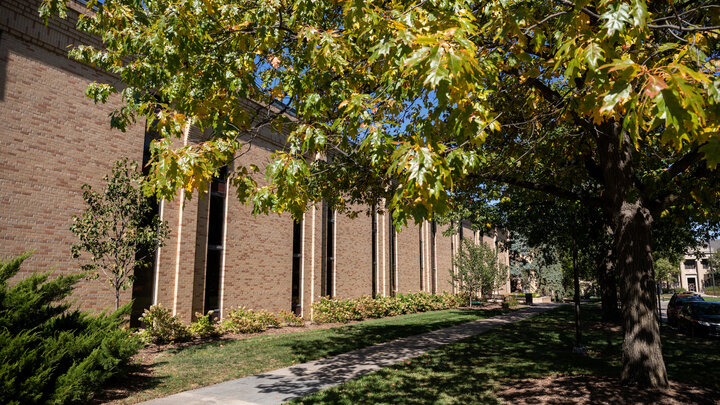The University of Nebraska–Lincoln’s College of Education and Human Sciences is honoring the legacy of longtime CEHS faculty member and administrator Gwendolyn Newkirk by renaming the Human Sciences Building on East Campus. The University of Nebraska Board of Regents approved the name change to the Gwendolyn A. Newkirk Human Sciences Building on June 23.
“Dr. Newkirk was a leader of action who paved the way for others,” said Sherri Jones, dean of the College of Education and Human Sciences . “Renaming the Human Sciences Building after her is a fitting tribute to recognize her undeniable legacy of leadership and service to the college, IANR, the university, the community and her profession.”
Newkirk came to Nebraska in 1971 as chair of the Department of Home Economics Education in the College of Home Economics. Newkirk led the department at a time when the home economics education major was losing momentum across the nation. As a result, Newkirk facilitated major revisions to curriculum to enhance its relevance and impact, while overseeing the renaming of the department from home economics education to consumer science and education.
In her role, Newkirk also led a weeklong trip in which Nebraska home economics teacher educators and state department-related personnel observed family systems of action as taught in selected secondary schools in Minnesota and Wisconsin. In 1980, she served as a home economics curriculum consultant in Yambio, Sudan. Newkirk retired from the university in 1991.
Within the profession of home economics education, Newkirk is considered a trailblazer. In 1975, she was elected the first African American president of the American Home Economics Association. This is a significant achievement, especially considering that when Newkirk began her professional career, she was not permitted to even join the organization. Other professional service included the American Vocational Association, Nebraska Home Economics Association, National Education Association, American Educational Research Division and Coalition of Vocational Educators. She also served on the board of directors for General Mills and Tabitha, Inc.
Newkirk is an active member of Alpha Kappa Alpha Sorority, Psi Omega chapter, an international sorority that promotes professional development, service, advocacy and social change. It was the first minority sorority in the nation, formed with nine women in 1908 at Howard University. Newkirk was honored for 75 years of membership in 2019.
Newkirk’s impact on the College of Education and Human Sciences continues to be felt through her generous support of the college. The Gwendolyn A. Newkirk Reading Center Fund helps support tutoring services at the Kit and Dick Schmoker Reading Center, the Gwendolyn A. Newkirk Global Education Fund supports faculty and student participation in domestic and international cultural and cross-cultural experiences, and the Gwendolyn A. Newkirk Professorship of Leadership in Child, Youth and Family Studies provides stipend support for the chair of the Department of Child, Youth and Family Studies and faculty support.
The request to rename the building was initiated and supported by the Chancellor’s Commission on the Status of People of Color. The Gwendolyn A. Newkirk Human Sciences Building houses laboratories and offices for the Department of Nutrition and Health Sciences and Department of Textiles, Merchandising and Fashion Design, as well as college classrooms, the Robert Hillestad Textiles Gallery and the Osher Lifelong Learning Institute.
“The Gwendolyn A. Newkirk Human Sciences Building will recognize a prominent and significant contributor to the history of CEHS,” Jones said. “It will also serve as an inspiration for future generations of action-oriented, servant leaders who will enhance the lives of individuals, families, schools and communities and strengthen the relationships among them.”




